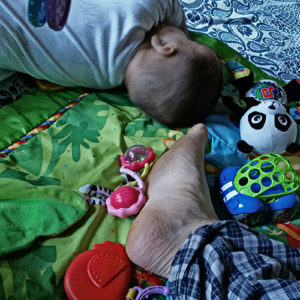
The Blind Side: Evolution of a Game by Michael Lewis
My rating: 3 of 5 stars
A friend gave me a big stack of books a while ago and Moneyball was one of them. I eventually got around to reading it and my one regret was not reading it a lot sooner. I immediately went to my local library’s website and said “Gimme everything you got by this Michael Lewis guy.” They finally gave me The Blind Side a few days ago.
I think it’s fair, but a bit shallow, to say that The Blind Side is a football version of Moneyball. This time around, Lewis uses “new football” (my phrase) to contextualize a short biography of Michael Oher; in Moneyball, Billy Beane’s story was just one part of a new way to look at baseball. But there are plenty of other parallels. There’s another Bay Area guy named Bill finding ways to win with meager resources. There’s an underlying tone of an established old-boys network resistant to the new way of doing things. There’s even an unsung hero who gets things going with a well-researched newsletter.
And through it all, of course, there’s that Lewis story-telling style, part journalism, part fairy-tale. It’s a compelling style, very readable, as likely to drop an F-bomb as to quote Friedrich Engels. And not given, in my opinion, to too much proselytizing or judgement.
That said, I’d be remiss if I didn’t offer my my own opinions. So let’s say the “review” part of this post is over, and now I’m going to editorialize a bit.
I’ve always been of the notion that modern American athletics can be likened to slavery, whether it’s unpaid college athletes and the billions of dollars their universities earn, or, even worse, a “farm” system that keeps kids poor so that opportunities in athletics come to be their only hope for success. Michael Lewis writes, “The inner city of Memphis alone teemed with kids whose athletic ability had market value.” As soon as I read that, my notion was reinforced.
“The Blind Side” is a nickname for where the right tackle comes at a passing quarterback, and a metaphor from where Michael Oher himself came before earning his well-deserved reputation as a gifted athlete. But don’t we sports fan stay willfully blind, protected by rationalization (“These athletes make more money than I do!”) and are thus able to ignore the truly terrible lives led by those who DON’T become professionals? Why do we give a few men billions of dollars when we could be giving thousands of poor children something decent to live off of?
I don’t doubt that the real hero of this story, Oher’s adoptive mother Leigh Anne Tuohy, had only pure intentions when she took Michael in. More people like that in the world, and we’ll all be better for it. But until we do have more people like that, there’s always going be a part of me that feels guilty when I watch sports.







